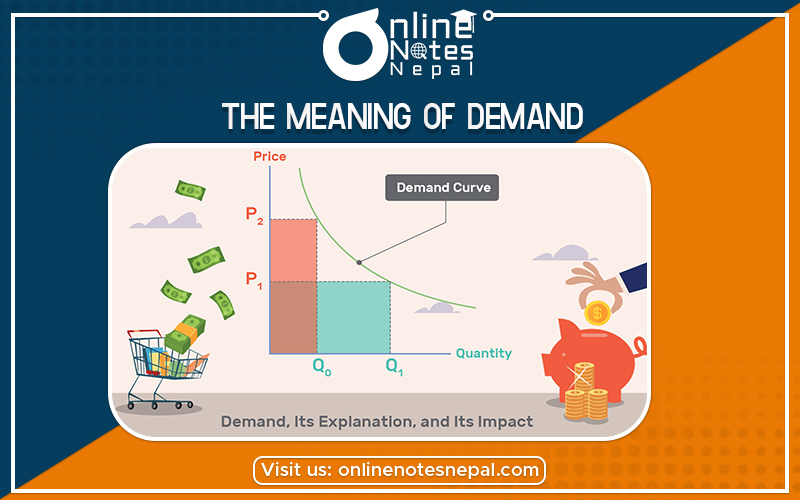Published by: sadikshya
Published date: 28 Jun 2021

The meaning of demand is the various amounts of a product that will be purchased in particular. Prices during a particular period of time in the market, consumer demand for a produced represent is desires for it, which is sufficiently backed by ability and willingness to pay for produce. Demand and desire are not the same, only an effective desire is a demand and effective desire is a desire which is fully backed by ability and willingness to pay show as to make the desire the reality.
The main difference between demand and desire are as follows.
|
Demand |
Desire |
| It is an effective desire to get a commodity-backed by ability and willingness to pay. | It is just a wish to have a commodity without sufficient income to pay it. |
| Demand is bounded by price quantity, place and time. | Desire is unbounded one can desire anything they like. |
| Demand effective economic activities like production, exchange, consumption, etc. | Desire like production, exchange, consumption, etc. |
|
Policymaker are very much interested inDemand. Example: when a person with sufficient money buys an air ticket it is demand. |
Policymaker is not interested in desire. Example: a beggar may desire to travel by air. |
Demand can be classified into three major types:
Price demand shows the relationship between the price of goods and quantity demand. Other things remaining the same if the price of goods in higher consumers will purchase less quantity of goods and if the price lower consumers will purchase more quantity of goods. It means there is an inverse relationship between price and quantity demanded.
Other things remaining the same income demand indicates the relationship between the income of the consumer and the quantity demand of the commodity. In other words, it relates to the various quantity of a commodity that will be bought by the consumer at various consumers of income. The demand for commodities depends upon the income of the consumer. Generally, if the income of the consumer increases the demand for the commodity also increases and vice versa. In the case of normal goods, there is a positive relationship between income and quantity demand, but in the case of inferior goods, there an inverse relationship between income and quantity demand.
It is a situation where a change in the price of one commodity results in the change of the demand for other commodities. In this way cross demand indicates how the demand for a commodity is affective by the change in the price of a related commodity may substitute and compliment commodities which can be used in place of other commodity are known as substitute goods. Such as tea and coffee, bread and rice, etc. commodities that are required jointly are term as complementary goods such as pen and ink, car and petrol, SIM card and mobile sets.